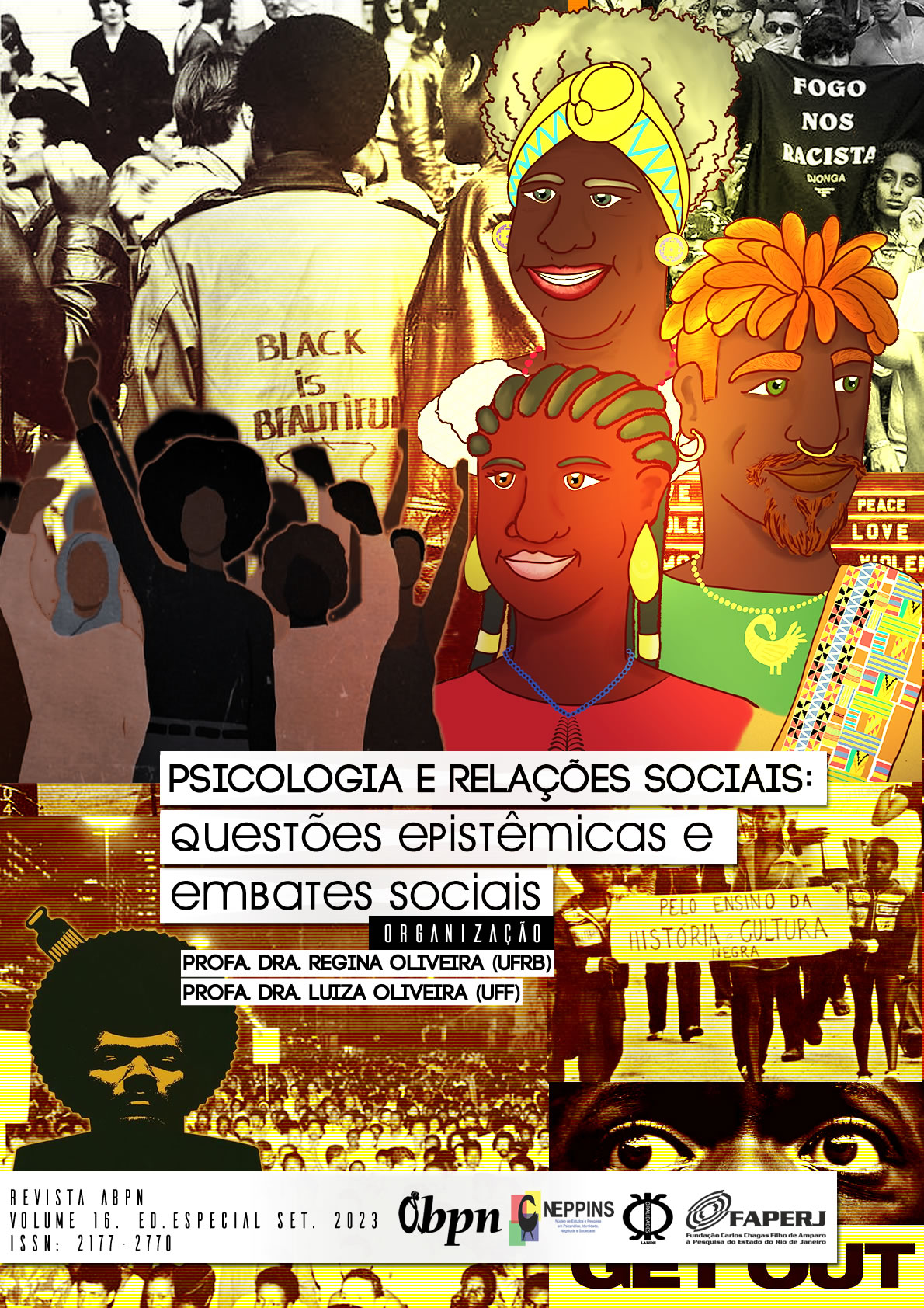RACISMO É UM TRAUMA COLONIAL: DIÁLOGOS ENTRE FRANTZ FANON, NEUSA SOUZA E GRADA KILOMBA SOBRE O ADOECIMENTO NEGRO NO BRASIL RACISM IS A COLONIAL TRAUMA: DIALOGUES BETWEEN FRANTZ FANON, NEUSA SOUZA AND GRADA KILOMBA ABOUT BLACK ILLNESS IN BRAZIL
Main Article Content
Abstract
This article presents articulations between the contributions of Frantz Fanon, Neusa Santos Souza and Grada Kilomba, to understand everyday racism as colonial trauma and its emotional impact for black people. The content of the paper is an excerpt from a doctoral research that collected data from the life stories of 12 black people. From the collection of life stories, the impact of everyday racism on the processes of identity and subjectivity was evidenced, highlighting emotional damage or mental illness. We argue, throughout the manuscript, about how racist stereotypes fall on black bodies producing suffering resulting from a process of naturalization of the feeling of inferiority. In the end, we reinforce the need to consider racism as a central factor in the process of illness of black people and to produce an afro-referential knowledge in the field of mental health.
Article Details

This work is licensed under a Creative Commons Attribution 4.0 International License.
Copyright Statement
- Authors retain copyright and grant the journal the right of first publication, with work simultaneously licensed under the Creative Commons Attribution License CC-BY 4.0 which allows the sharing of the work with acknowledgment of the authorship of the work and initial publication in this journal.
- Authors are authorized to enter into additional contracts separately for non-exclusive distribution of the version of the work published in this journal (eg, publishing in institutional repository or book chapter), with acknowledgment of authorship and initial publication in this journal.
- Authors are allowed and encouraged to post and distribute their work online (eg in institutional repositories or on their personal page) at any point before or during the editorial process, as this may lead to productive changes as well as increase impact and citation of published work (See The Effect of Free Access).

